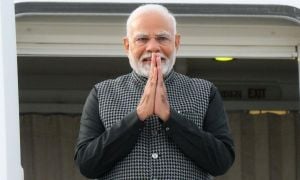Robert F. Kennedy Jr.'s recent nomination by President Donald Trump for the role of Secretary of Health and Human Services (HHS) has ignited considerable debate and controversy. This position, pivotal for directing public health strategies, has thrust Kennedy’s past remarks and beliefs under the microscope, posing significant challenges to his confirmation process. To secure this high-profile role, Kennedy will need the backing of 50 senators, and it’s far from guaranteed, considering the contentious issues tied to his views.
One of the most contentious points is Kennedy’s stance on vaccines. Although he hesitates to label himself as strictly anti-vaccine, his leadership of the anti-vaccine organization Children’s Health Defense (CHD) and his vocal opposition to vaccinations raise eyebrows. Kennedy claims there’s a connection between mercury, historically found in some vaccines as thimerosal, and neurological disorders like autism. A pivotal piece he authored back in 2005, titled Deadly Immunity, argued against the vaccine establishment, alleging government collusion with pharmaceutical companies. This article later faced heavy criticism and was eventually retracted, with various journalists and experts pointing out flaws and inaccuracies.
His assertions have been met with severe backlash from numerous political figures, particularly from Democrats. For example, Senator Elizabeth Warren criticized him sharply, saying, “RFK Jr. wants to stop parents from protecting their babies from measles and his ideas would welcome the return of polio.” Senator Patty Murray expressed equal alarm, stating, “Donald Trump’s selection of a notorious anti-vaxxer to lead HHS could not be more dangerous.”
The COVID-19 pandemic saw Kennedy ramp up his controversial rhetoric, challenging established health guidelines and vaccine efficacy. His organization, CHD, saw financial growth during this period as he engaged vigorously with the anti-vaccine narrative, amassing approximately $6.8 million in revenue by 2020. Notably, he was banned from social media platforms like Instagram for disseminated misinformation about vaccines. His viewpoints took a troubling turn when he made comparisons between the treatment of unvaccinated individuals to Jewish victims during the Holocaust, leading to widespread condemnation.
Beyond vaccines, Kennedy’s approach to public health includes controversial beliefs about the origins of COVID-19. He propagated the idea of the virus being ethnically targeted, which spurred reactions from various Jewish organizations condemning his statements as dangerous and offensive.
Another layer to Kennedy’s controversial reputation involves his skepticism surrounding the connection between HIV and AIDS, as well as the effectiveness of early HIV/AIDS treatments. While there’s broad consensus among health organizations about the direct link between HIV and AIDS, Kennedy has speculated about the roles of other factors and has been openly skeptical about antiretroviral drugs like AZT. Despite HIV’s long-established link to AIDS, he has termed the accepted medical narrative as potentially misleading, arguing for alternative hypotheses.
Concerns extend beyond infectious diseases and vaccinations, as Kennedy has voiced his opposition to water fluoridation, asserting it as toxic and unnecessary. Fluoride, added to drinking water since the mid-20th century, is regarded by health authorities, including the CDC, as one of the ten major public health achievements. Kennedy’s push for the removal of fluoride from public water systems draws resistance from the scientific community, which cites the substantial benefits of fluoridation on dental health.
Compounding the issue, Kennedy advocates for greater access to raw milk, challenging standard food safety protocols. Proponents of raw milk claim it offers health benefits over pasteurized versions; health officials warn about the dangers, including serious pathogens associated with raw consumption. The CDC has repeatedly shown concern over the sale of such products due to potential health risks.
Kennedy's discussions around obesity and pharmaceutical interventions, particularly relating to medications like Ozempic, have also raised alarm among medical professionals. During his appearances on media outlets, he disparaged the use of Ozempic and similar drugs, arguing against their effectiveness and labeling their prescription as indicative of public dependency on drugs. The medical community has criticized Kennedy for lacking nuance and failing to take the complexity of obesity and chronic disease seriously.
Experts argue against Kennedy’s oversimplified view, emphasizing the necessity of medication for specific individuals struggling with obesity. Rather than seeming to offer constructive solutions to pressing health concerns, his propositions are often viewed as regression to outdated paradigms, lacking fundamental support from contemporary research.
All these factors contribute to the uphill battle Kennedy faces during Senate confirmation hearings. With such polarized opinions and accusations of misinformation trailing him, the potential for confirmation as HHS secretary stands precariously balanced on the scales of public opinion and health policy integrity. His history of controversial statements and positions aligns poorly with the scientific community's neighboring consensus on these issues.
Experts within the health field have voiced their worry over Kennedy’s nomination, urging senators to weigh his past statements seriously. Dr. Tom Frieden, former CDC director, asserted the need for factual clarity and evidence-based policy, highlighting the danger of misinformation on public health campaigns. Meanwhile, Kennedy positions himself as a reformer and critic of governmental health measures, even as many perceive him as undermining trust in public health efforts.
With the nomination process gaining momentum, the coming weeks promise to be filled with intense discussions and debates; those concerned about public health cannot dismiss the potential ramifications if Kennedy's controversial ideas guide national health policy. This nomination not only turns the spotlight on Kennedy’s stance but also raises fundamental questions about the future approach to health strategies under his leadership, should he secure the role.



